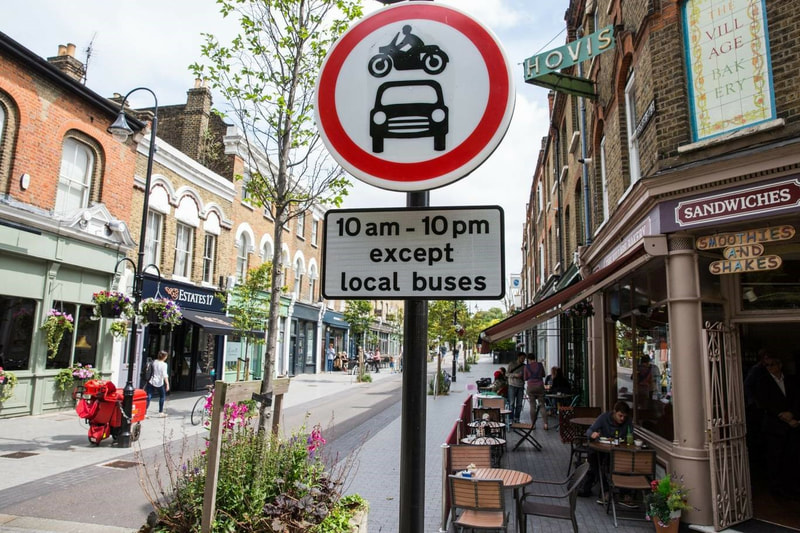IntroductionIn 2013, Waltham Forest was one of three boroughs (along with Kingston and Enfield) in outer London selected to share the total £100m pot from the Mayor of London’s Mini-Hollands fund. The funding was used to upgrade streets and road networks to help tackle safety for walking and cycling, air quality and public health. Waltham Forests's allocated £27m was boosted to a £40m total pot by accessing money from local developments under Section 106. Co-CAFE project administrator Tom Shopland joined a guided tour of Waltham forest given by Paul Gasson, of Waltham Forest Cycling Campaign, who talked us through the changes to the road infrastructure in the neighbourhoods and the journey of engaging the local community with the project. The trip was organised by the Coalition for Healthy Streets and Active Travel in Oxford, which is made up of the following community groups: Cyclox, Oxford FoE, Oxfordshire Liveable Streets, Pedal and Post, Rose Hill and Iffley Low Carbon, Oxford Pedestrians Association. The following is taken from Tom's observations from the visit. Main approach to creating a mini Holland
Challenges
OutcomesA report in September 2018 by King's College London shows:
The research found that after one year, people living in parts of such boroughs were, on average, walking and cycling for 41 minutes a week more than those living in comparable areas. Among the most notable elements of the study, led by Dr Rachel Aldred of Westminster University, is that while the schemes were primarily billed as seeking to boost cycling, the bigger increase in active travel came on foot – an extra 32 minutes weekly on average, with nine more minutes by bike.' Westminster University expected the research to yield few results in the first two years of the study. The three year longitudinal study from Westminster University will be released in June 2019. Tom Shopland said of the visit to Waltham Forest, 'I was so inspired by what I saw, especially the increased trees, small green spaces, space for community engagement, quiet neighborhood roads, increased protection of cyclists and walkers with dedicated spaces. I am beyond keen to make this happen for the people of Oxford.' What about Oxford?Our visiting group were very impressed with what we saw in Waltham Forest and concluded that a pilot project in Oxford was needed, focused on one area or road and include all the community groups to create the standard street design for rolling out to a wider plan across Oxford city.
1 Comment
|
AuthorsCo-CAFE is led by Tim Jones (Reader in Urban Mobility) with Ben Spencer (Research Fellow) and Tom Shopland (Co-CAFE project administrator) based in the School of the Built Environment at Oxford Brookes University. Archives
February 2020
Categories |
|
Oxford Brookes University
School of the Built Environment +44 1865 48 4061 |
|
Funded by the Lifelong Health and Wellbeing cross-Council programme. Grant No. EP/KO37242/1
|















 RSS Feed
RSS Feed


